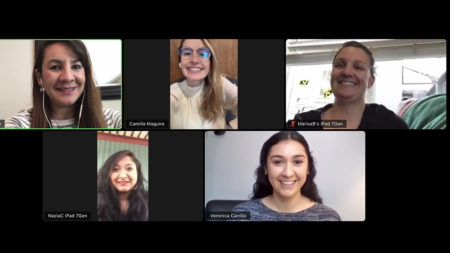
In honor of Social Work Appreciation Month this March, we celebrate our wonderful social work team.
Pandemic prevention measures have changed so much of daily life, and that includes how we deliver hospice services. Most nursing facilities and assisted living communities continue to restrict visits by outsiders, except for medically essential visits or when a patient is actively dying. Social work visits, though certainly essential to the hospice experience, are not classified as medically essential in these COVID-19 times. So, instead of our usual face-to-face interactions, we transitioned to other means of communication in most cases.
Social isolation became the primary concern, as many individuals were dealing with anxiety and depression. The human connection is so important, especially at end-of-life when one yearns to hold hands, hug, and sit amid the comfort and love from their family and friends.
Our focus quickly turned to evolving our tactics to help families in a time when physical presence was reduced. The use of video calls with patients, families, and facility teams helped us facilitate meaningful connections and end-of-life closure conversations.
We use video conferencing for common services like completing an advanced directive, funeral planning, and anticipatory grief counseling. But we’ve also relied on this technology to facilitate meaningful, intimate moments between patients and their loved ones from afar; on many occasions, we have arranged phone or video calls to provide an opportunity for a patient to hear a loved one’s voice say “You are loved” and “You are not alone.”
There are many people on the hospice team—some provide medical care, other assist with personal care, and more who support family members. At Starr, we recognize the dedication and empathy social workers deliver while providing services. Click here to learn more about the role of social work in hospice.